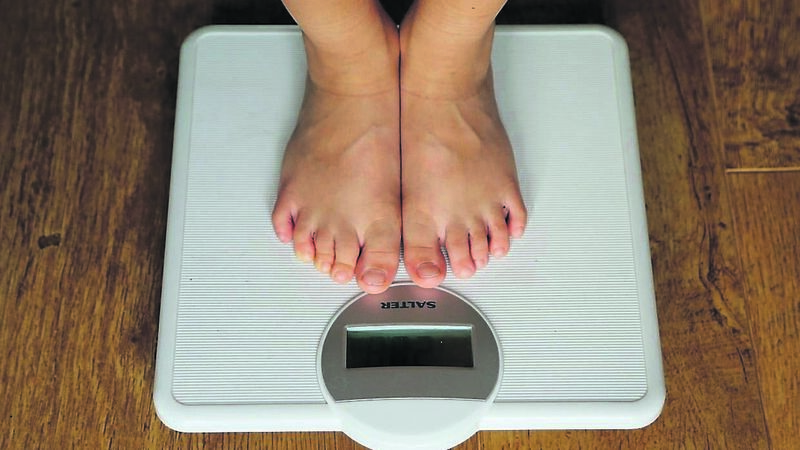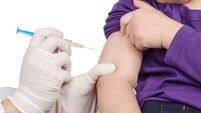Childhood obesity must be key plank in new health taskforce

“Junk food companies have become increasingly sophisticated in their targeted approach to online food marketing.”
At the launch of the Online Health Taskforce, Mr Donnelly said it is his belief “that harms to young people as a result of online interactions constitute a public health crisis”.
He added: “I think the partnership approach is over. I wouldn’t suggest the partnership approach with tobacco companies. I’m not suggesting a partnership approach with online platforms.”
The Minister affirmed that children are encountering “violent, misogynistic and other mentally distressing content online. The taskforce will provide recommendations of “radical actions Ireland can take to keep young people safe”, Minister Donnelly said, adding that he wants Ireland to be a leader in the area of online safety and enforcement.
The taskforce has been asked to consider the range of social, mental health, physical health and sexual harms and to recommend strategic responses to address these harms.
The 12 members of the taskforce include experts in public health, data analytics, digital media, mental health, human rights, education and behavioural science. The failure to include an expert in childhood obesity on the taskforce could result in this key issue being overlooked in a bid to protect children’s wellbeing in other areas.
That would be a real shame. Levels of childhood obesity remain alarmingly high. Safefood research estimates over 85,000 - or one in 20 - children in Ireland will die prematurely due to overweight or obesity.
Every child has the right to grow up free from the undue influence of advertising for products likely to be detrimental to their health. But, for the first time in history, we are raising a generation of children that are expected to live shorter lives than their parents.
In 2016, the World Health Organisation (WHO)’s Commission on Ending Childhood Obesity (ECHO) concluded that evidence was ‘unequivocal’ that marketing of unhealthy food and sugar-sweetened beverages was related to childhood obesity.
The WHO argued that global regulation is either absent or relies on ineffective self-regulatory pledges. In the few countries where legally binding regulation has been introduced, the rules are generally too narrow in scope to protect children effectively from exposure to unhealthy food marketing.
Food marketing changes what children want and do. It changes their attitudes to food - what they want to eat and their preferences. It changes what they ask their parents to buy. It influences what they buy themselves when they get pocket money. And, of course, it massively influences what they eat.
The Irish Heart Foundation, in their campaign ‘Stop Targeting Kids’, maintain that unhealthy food and drink marketing has become a wallpaper in children’s lives; “an insidious background and environment that children are faced with where they live, where they go to school, where they play and when they travel”.
Junk food companies have become increasingly sophisticated in their targeted approach to online food marketing. This includes designing branded games and apps for young children; paying influencers popular with children to promote unhealthy products on social media; designing their own content on social media that children can engage with and share with friends; or running ads on social media that appear when children are online.
To date, the government has relied on self-regulation developed by the food, drinks and advertising industry. But if we want to have a real impact on children’s prospects for a healthy life, Government must introduce mandatory requirements to regulate advertising and marketing, and be much more proactive than they have been to date.
The Irish public agrees. An IPSOS IHF Childhood Obesity Research survey (2019) found nearly three out of four people want a ban on the marketing and promotion of unhealthy food to children.
Most digital marketing takes place completely under the radar of parents, policymakers and health professionals. Unlike television, where ads can be monitored and analysed, online marketing including ‘influencer marketing’ enables brand promotion and marketing to be woven seamlessly into young people’s digital and everyday experiences.
The research backs this up. Australian researchers found that children see three online ads every ten minutes. Canadian research confirmed that kids are exposed to nearly 6,000 food adverts a year on apps such as Facebook, Instagram, Snapchat, Twitter and YouTube; whereas under 16s in the UK were exposed to over 15 billion online junk food ads in 2020.
In terms of online marketing of junk food to children, the IHF has made specific recommendations:
The Irish Government must regulate to protect children from unhealthy food marketing and policy development must be protected from the food and advertising industries’ efforts to influence it;
Policy must be informed by the best available evidence from public health organisations and academia - the lack of a clinical or public health obesity expert on the Online Taskforce is a cause for concern in this regard;
Legislation must be comprehensive and future-proofed - effective regulation must apply to all marketing techniques and technologies now and into the future. This includes marketing on social media, video streaming or gaming platforms (influencer, brand owned, sponsored and shared content), branded mobile applications, games and websites and programmatic or display advertising.
Finally, under the present mechanisms, even when the rules have been broken the consequences are minimal. ‘Name and shame’ or post removal are used, as opposed to significant sanctions for non-compliance, including financial penalties.
This is an enormous ask, but also an immense opportunity to protect children’s health. The IHF robustly sum up what is needed by saying that “Ireland must put our children’s health above the processed food industry’s profits”.
Professor of Interdisciplinary Studies of Childhood and Youth, The Open University, Mimi Tatlow Golden, summarised the impact on children succinctly at a Safefood All Island Obesity Forum Webinar in 2020: “Online platforms have very extensive data on all of us in all domains of our lives. It’s a fundamental power inequality that we’ve allowed to evolve in society.
“It affects children’s lives in many, many ways, through marketing - in the ways their thoughts and feelings and behaviours are being shaped and we as societies, as parents have no control over that unless we manage to persuade regulators to say enough is enough.”
This Online Taskforce has a huge job of work and presents a massive opportunity to make robust recommendations to protect the online lives of children. Regulation of social media is a key priority, but the role of online marketing of junk food at a time of unprecedented levels of childhood obesity must not be forgotten.
Dr Catherine Conlon is a public health doctor in Cork and former director of human health and nutrition, safefood







 App?
App?




